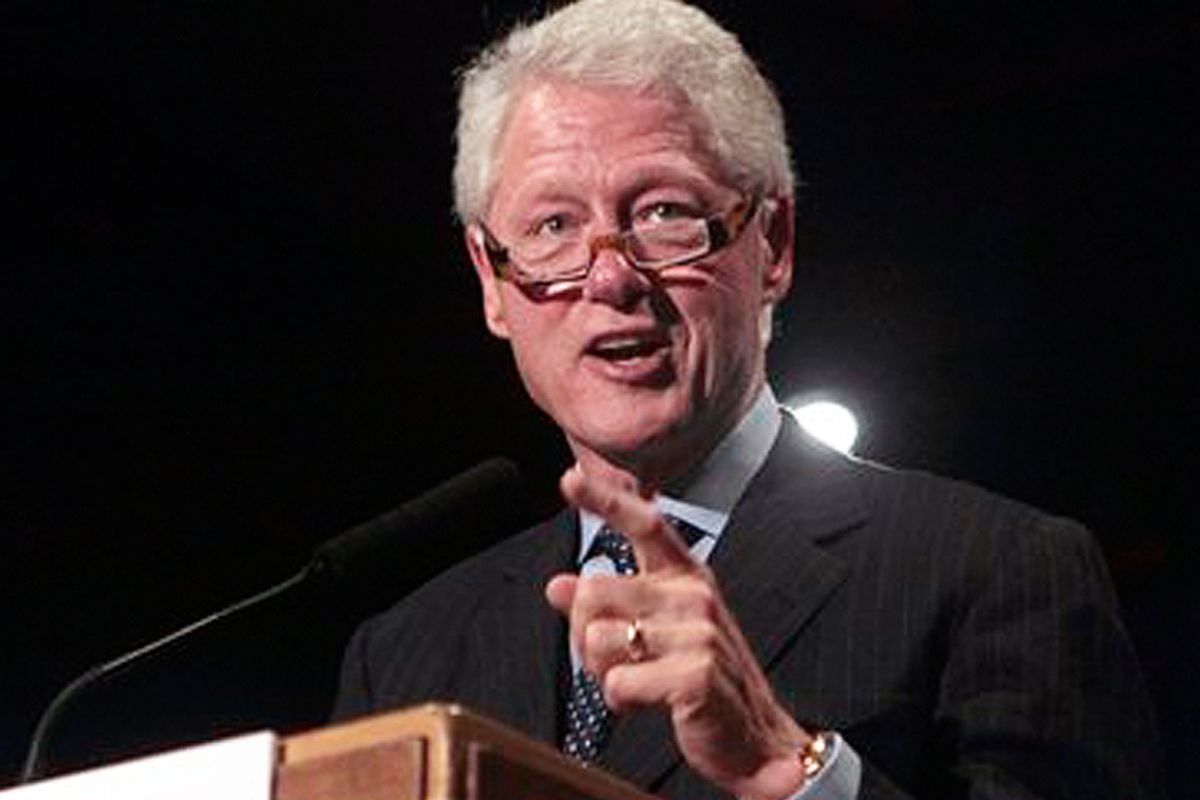It's tempting -- really, really tempting -- to watch Bill Clinton on television these days and to say, "Gee, the Democrats would be much better off right now if he were in the White House instead of Barack Obama."
The reasoning goes something like this: Clinton's genius came in communicating both empathy and policy mastery. He felt your pain, but he also had a detailed, utterly reasonable plan to alleviate it. More than most Democrats, he was (and still is) attuned to the cultural grudges and resentments that animate white middle class voters, and he was able to bring just enough of them back into the Democratic fold to win two national elections. By contrast, Obama, we are told over and over, is too "professorial" to "connect" with these voters. So, if only Obama could be more like Bill, maybe Democrats wouldn’t be staring at such a gruesome midterm election outlook!
We're hearing a lot of this kind of talk this week, with Clinton back in the news, thanks to his annual global summit in New York. In interview after interview, he's tried to diagnose the reasons for his party's current political woes and presented his own prescription for minimizing the pain in November. In classic Clinton style, he's offered an olive branch to the Tea Party crowd, acknowledging the legitimacy of some of the anger at the heart of their movement, and has urged Obama to offer specific proposals for the next two years -- and to contrast that agenda with the extreme Republican program.
Clinton, pundits are now telling us, embodies the magic formula that Obama is missing. "This is why Bill Clinton is both an amazing natural politician and and old pro (take lesson, 44 ...)," Mark Halperin wrote.
This is true, but only to a point. Yes, Clinton was -- and is -- one of the most effective communicators the Democratic Party has ever produced. But his gift for persuasion had sharp and clear limits while he was president, and when he was faced with a political climate like the one Obama now confronts, it was utterly useless.
That was in the 1994 midterm elections, the last time before this year that a Democratic president's party controlled both chambers of Congress. The economy wasn't as feeble, but Clinton had been weakened by a series of public relations blunders and by the success of congressional Republicans in stalling major pieces of his agenda (a stimulus package, healthcare reform, and a crime bill, mainly) and making Clinton seem ineffective. His poll numbers were slightly weaker than Obama's are now and the prospects for his party weren't good.
Nonetheless, Clinton hit the campaign trail with vigor, believing that he could talk and emote his way to a decent November result. And if you look back now and read Clinton's campaign trail words -- or watch him in action -- you'll quickly realize that all of the magical-seeming traits we now celebrate were on full display. Just watch this speech in Virginia from October 1994, at a Democratic dinner:
During the '94 midterms, Clinton defended his own achievements, arguing that he'd accomplished more than the media gave him credit for, but stressed that he understood why Americans still felt uneasy. "The record is a good one," he said, "and there is ample evidence that if people knew the record, they would respond to it." He also took after the Republicans, just as he now advises Obama to do, attacking the House GOP's "Contract With America" and shaming would-be Speaker Newt Gingrich for calling Clinton "the enemy of normal Americans."
In short, Bill Clinton was Bill Clinton in the 1994 midterms -- and his party still got massacred. The GOP still won 52 House seats and won the chamber for the first time since 1954, and it still won eight Senate seats to control that body for the first time in eight years. And when the dust settled, the political world -- Republicans, Democrats and the media -- was united in one conclusion: Clinton was a goner in 1996. The country had tuned him out. He had lost his ability to "connect."
His experience is well worth keeping in mind now. We like to think that personality, message and campaign tactics are what define elections -- that the good politicians are the ones who put all of this together in a way that trumps structural factors like the economy. But that's just not how it works. Clinton's words -- no matter how masterfully crafted and articulated -- fell on deaf ears in 1994, just as Obama's are mostly falling on deaf ears today. It was only when favorable structural factors were again present that Clinton began "connecting" again. Obama's style may be different than Clinton's, but it already played well with the general public once, and it can again -- if favorable structural factors return.



Shares